SUMMARY
This is AI generated summarization, which may have errors. For context, always refer to the full article.
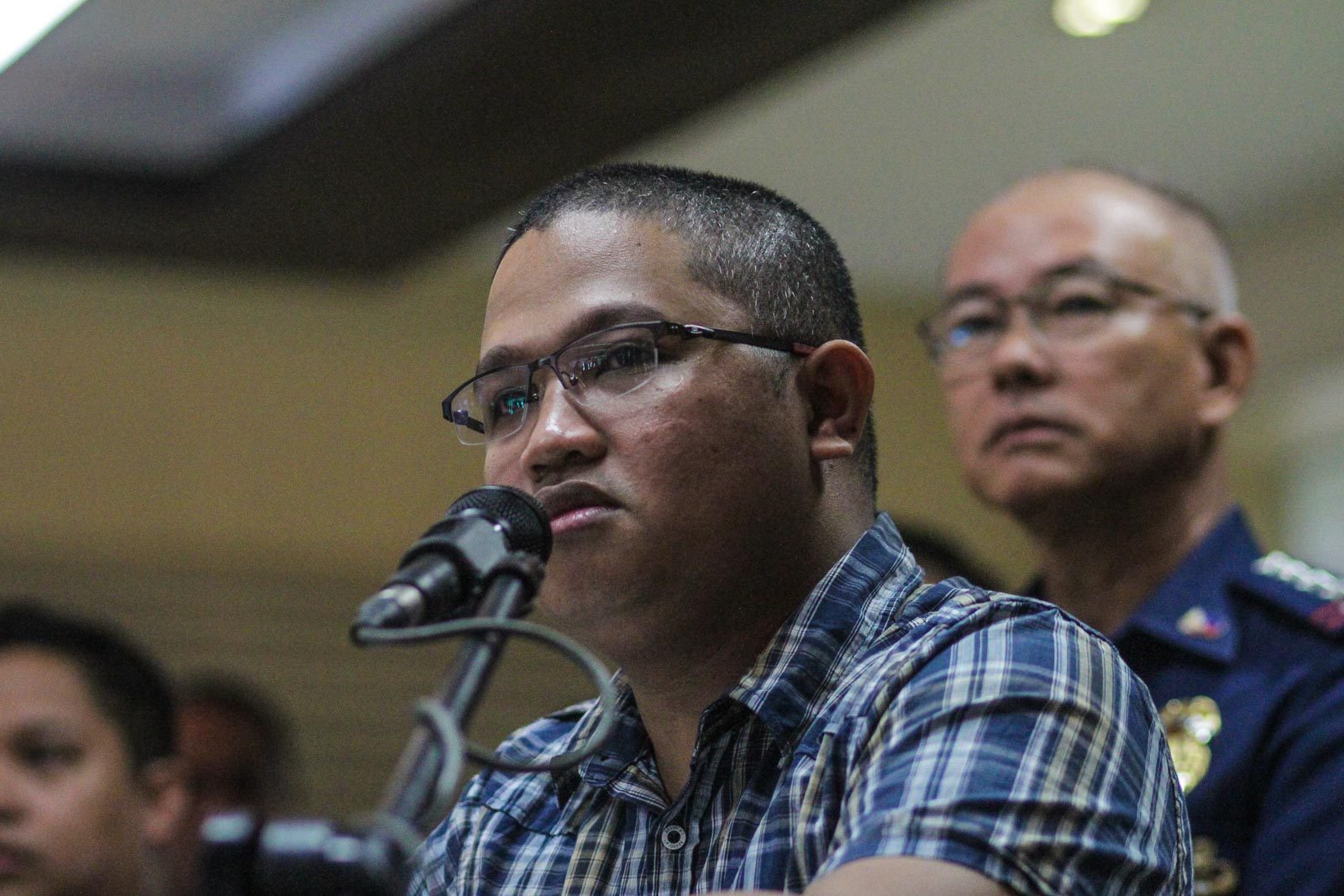
MANILA, Philippines – A Manila court found Peter Joemel Advincula, also known as “Bikoy,” guilty of perjury over his allegations against Free Legal Assistance Group (FLAG) lawyers Chel Diokno, Erin Tañada, and Theodore Te.
Perjury means lying under oath or making an untruthful statement or affidavit required by law.
“WHEREFORE, premises considered, the Court finds accused PETER JOEMEL ADVINCULA GUILTY beyond reasonable doubt of the crime of Perjury in Criminal Case No. M-MNL-21-00230-CR. Accordingly, the Court hereby imposes upon him the indeterminate penalty of three (3) months and one (1) day of arresto mayor as minimum, up to one (1) year and one (1) day of prision correccional as maximum,” the decision by Manila Metropolitan Trial Court (MTC) Branch 17 Presiding Judge Karla Funtila-Abugan read.
However, no civil liability was adjudged due to lack of basis. Civil liability means a person can obtain redress another person. The case stemmed from a complaint filed by the FLAG lawyers in connection with “Ang Totoong Narcolist” videos.
Decision
Prosecution was able to prove all the elements of perjury under Article 183 of the Revised Penal Code (RPC). According to the court, the most contentious issue in Bikoy’s perjury case is the element of deliberate falsehood.
The Supreme Court said in Villanueva vs. Secretary of Justice that there are two essential elements to prove perjury, aside from the RPC’s requirement:
- Statement of the accused must be proven false
- It must be proven that the accused “did not believe those statements to be true”
The witnesses, which included the private complainants and Margeaux Deona, were able to establish the falsehood of Bikoy’s statement, said the court.
In their testimonies, Diokno and Tañada said they never saw or met Bikoy in the said place and that their purpose of attending the forum was because they were both senatorial bets at that time. The court added that Diokno, Tañada, and Deona’s statements were categorical and straightforward and gave a clear account of the forum’s details.
Meanwhile, Te said he only met Bikoy on May 2, 2019, to evaluate him as a possible client of FLAG, and not because of the so-called Project Sodoma.
In the second requirement for perjury, where it needs to be proven that the accused did not believe his/ her statements to be true, the court once again looked into the Bikoy’s testimonies.
The court said Bikoy’s statements do not appear to be an expression of opinion or judgment, but rather he made them under the pretext that he was present and participated in the alleged meetings. The Manila court determined this by Bikoy’s use of the word “kami (us),” which showed his supposed personal knowledge of the meetings on March 4 and May 2, 2019.
However, the court said the prosecution was able to show that the accused was not present during the forum on March 4, 2019, nor had contact – even briefly – with Diokno and Tañada during the said date.
As for the May 2, 2019 meeting, the prosecution was also able to prove that the purpose of the said meeting was to assess if Bikoy can be legally represented by FLAG, and not because of the so-called Project Sodoma.
On civil liability
The Manila court explained why it decided not to impose civil liability.
According to the court, Article 2221 of the Civil Code says nominal damages may be awarded to an aggrieved party so that a person whose right has been violated or invaded may be vindicated or recognized. But “not for the purpose of indemnifying the plaintiff for any loss suffered.”
In addition, jurisprudence has also shown that nominal damages may be granted if a right has been violated, but did not produce injury or loss to the aggrieved party, according to the court.
There was no sufficient basis to award nominal damages because the prosecution’s evidence primarily focused on establishing the “elements of the crime of Perjury and not the legal rights of the private complainants that were violated as a result of the criminal act of the accused,” the Manila court explained.
What happened before
On July 18, 2019, Advincula stated in his “sinumpaang salaysay” or sworn statement that Diokno, Tañada, and Te were alleged members of “Project Sodoma.” Bikoy alleged that the project was a plot to commit the crimes of sedition, inciting to sedition, libel, cyber libel, estafa, harboring a criminal, and obstruction of justice.
Bikoy’s perjury case is an offshoot of a sedition case filed against the lawyers. At the height of the controversy, the Philippine National Police (PNP) filed a sedition case against members of the opposition, including the lawyers, for allegedly using Bikoy and the video to plot the ouster of then-president Rodrigo Duterte.
The FLAG lawyers said the accused knew “fully well that said material statement was false thereby making a willful deliberate assertion of falsehood.”
Department of Justice (DOJ) prosecutors charged Advincula for failure to prove the lawyers’ involvement in the so-called plot. The case was filed on January 11, 2021, and seven days later, on January 18 of that same year, the court found probable cause to issue a warrant of arrest.
A few days later, on January 21, 2021, Bikoy voluntarily surrendered and posted bail.
The DOJ cleared most of the respondents in that sedition case, including former vice president Leni Robredo and the lawyers. (READ: Bikoy vs Bikoy: The biggest flip-flops of the government’s star witness)
Bikoy’s videos
In his videos, Bikoy made allegations about Duterte’s involvement in the illegal drug trade. However, he later resorted to flip-flopping narratives and tweaked details in his stories.
After initially hitting Duterte, Bikoy was presented by the PNP national police in Camp Crame. He switched sides and alleged the political opposition was behind the videos.
It was the PNP Criminal Investigation and Detection Group or CIDG that filed the sedition complaint against the opposition. They used Bikoy as witness, and then as respondent in the complaint. – Rappler.com
1 comment
How does this make you feel?
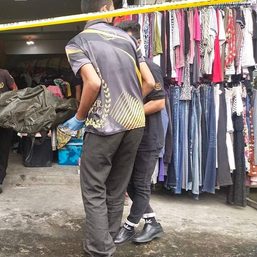
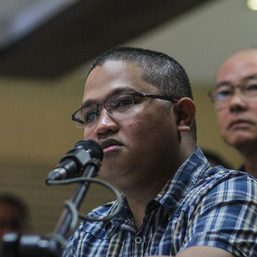
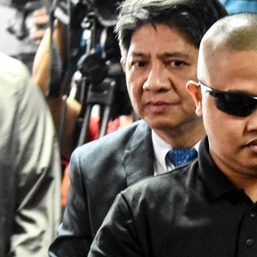
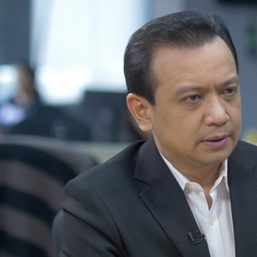
“Bikoy” certainly deserve it. This should serve as a warning to flip-floppers and to those who wanted to be used as tools of Dis-information. My deep appreciation to the efforts of FLAG Lawyers Chel Diokno, Erin Tañada, and Theodore Te!